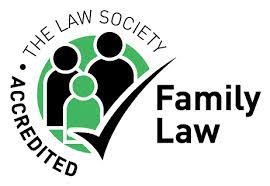The Coronavirus pandemic has been a strenuous time and has made victims of Domestic Abuse even more isolated. The Law has various ways to protect a victim of Domestic Abuse and there is more legislation being implemented to further safeguard victims.
If you are a victim of Domestic Abuse, then the Family Law team at Oliver & Co could help you to apply to court for protection. There are two options available:
- A Non-Molestation Order.
- An Occupation Order
A Non-Molestation Order is a type of injunction that limits a person’s actions, such as contacting you via telephone, social media, etc. and prevents them from coming near you. It can also extend to a child. A Power of Arrest is typically attached to a Non-Molestation Order and so, if the Order is not followed, the police will arrest the person in breach.
The benefit of a Non-Molestation Order is that the person whom it is against will be aware of the serious consequences of their actions if they do not obey it (such as imprisonment or a fine), which will give you more security.
It is possible to apply for a Non-Molestation Order on an urgent basis, without needing to notify the other person.
An Occupation Order is an Order which enforces who can live in the family home and who cannot. It can be used to exclude a person from the family home and to help another move back in safely. As with a Non-Molestation Order, you can apply for an Occupation Order urgently, without notifying the other person.
To apply for either a Non-Molestation Order or an Occupation Order, the person you are applying against must be an “associated person” this could mean they are:
- Your husband/ wife
- Your civil partner
- Someone you live or lived with
- Your relative
- Someone you have a child with
New measures are now being added to the Police, Crime, Sentencing and Court Bill, which will give domestic abuse victims better protection. The Bill is now at the “Consideration of Amendments” stage, which is the one of the final stages to make a Bill into Law, where the House of Commons will consider any amendments that the House of Lords have made.
The new amendments to the Bill will increase the time limit that victims of domestic abuse have to report incidents of common assault or battery to the police, from six months, to 2 years. Currently, a prosecution must start within six months of an offence. Domestic Abuse Commissioner Nicole Jacobs said: “It is important that all domestic abuse victims have the time and opportunity to report to the police. This is especially important following Covid restrictions, when many victims faced additional challenges to seeking help and reporting domestic abuse”.
If you want to discuss your options, please do not hesitate to talk to us 01244 312306 or by emailing us law@oliverandco.co.uk .













